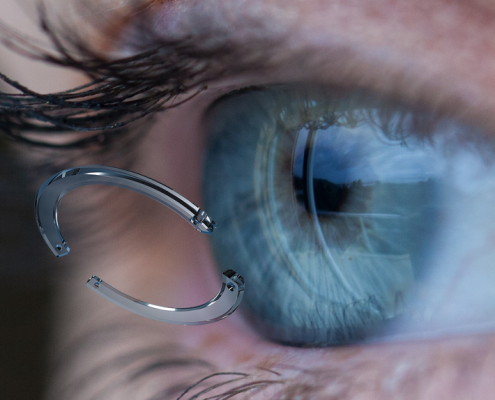Am I a Good Candidate for Corneal Transplants?
The first corneal transplant occurred in the early 20th century. The procedure has since evolved to use sophisticated instruments and advanced technology that requires years of experience and precise skills.
That’s exactly what Clifford Salinger, MD, at VIP Laser Eye Center bring to our patients throughout Palm Beach Gardens, Stuart, and Port St. Lucie, Florida. Dr. Salinger is a board-certified and fellowship-trained corneal specialist – a qualified choice when considering a corneal transplant.
Here, we take a closer look at the types of conditions we treat with a corneal transplant and whether you might be an ideal candidate for this effective procedure.
The facts about corneal transplants
Your cornea is the thin layer of tissue that covers your eye. If it becomes damaged or diseased, a corneal transplant may be the best way to restore your sight. Corneal transplants come from a deceased donor who has previously agreed to donate their corneas to those in need.
This incredible procedure has revolutionized the field of optometry. Corneal transplants have a success rate of 97%, the highest of any organ transplant. Since the early 1960s, nearly 2 million people have had successful corneal transplants.
Corneal transplants are so widespread, and donor awareness has increased so much that there are no known waiting lists for healthy corneas. In 2017 alone, US eye banks supplied more than 84,000 corneas for use in transplant procedures.
Criteria for corneal transplant candidates
If you have vision problems, you may be wondering if you can benefit from a corneal transplant. Given the success rate, the procedure offers hope to many. But is a corneal transplant right for you, and are you the right type of candidate? Let’s find out.
Good candidates for a corneal transplant should:
Have a condition that a corneal transplant can solve
A corneal transplant is only appropriate if you suffer from one of the several conditions that the procedure can address. These include:
- Inflammation of the cornea (keratitis)
- Severe and/or chronic infection
- Traumatic injury
- Corneal detachment
- Bulging cornea (keratoconus)
- Fuch’s dystrophy, a genetic eye disease
- Scar tissue
This is a partial list of the conditions that may require a corneal transplant. Talk to our team to find out if your eye condition fits the criteria.
It’s important to note that corneal transplants aren’t appropriate treatments for many common eye issues. For example, diabetic retinopathy, age-related macular degeneration, and glaucoma won’t improve with a corneal transplant.
Be in good physical condition
The best candidate for any type of transplant is in good physical condition. Although corneal transplants have become common and streamlined, they are still surgical procedures that involve donor tissue. If you suffer from a health condition that could lead to surgical complications or increase your risk for transplant rejection, you may not be a good candidate.
Have otherwise good ocular health
This may sound like an odd requirement because the reason you need a corneal transplant in the first place is that your eye health is failing. However, you stand the best chance for success if your cornea is the only problem you’re facing.
If you also suffer from other eye health issues, such as glaucoma, cataracts, chronic infections, or retinopathy, it may complicate the transplant procedure. While these conditions don’t necessarily disqualify you, talk to Dr. Salinger about all your known eye issues so he can help you make the best decision.
Cornea donor criteria
Recipients aren’t the only ones who need to qualify as good candidates. Donors have to meet certain criteria as well, such as having:
- No nervous system conditions
- No previous eye surgery complications
- No infections that may affect the cornea
Our team screens all corneal tissues before we accept them for transplantation. Although most corneas come from a donor who has passed away, there are rare instances when a living person can donate a cornea.
To find out more about corneal transplants and how this procedure may help your sight loss, schedule an appointment at VIP Laser Eye Center by calling us at 561-288-2447 today.










